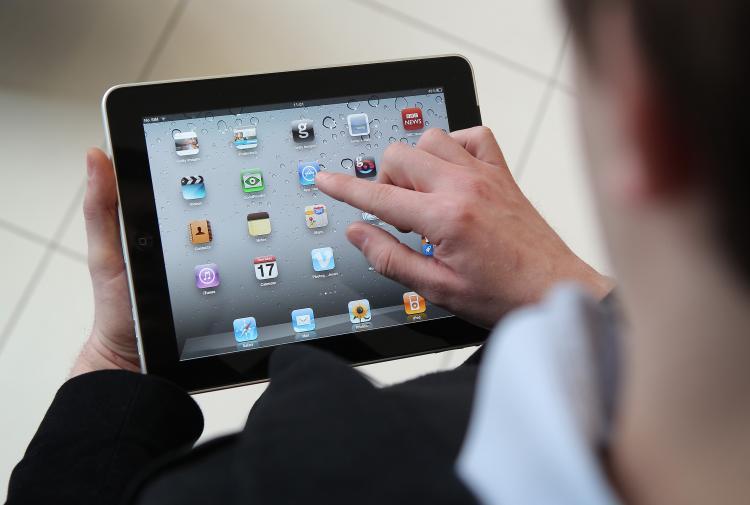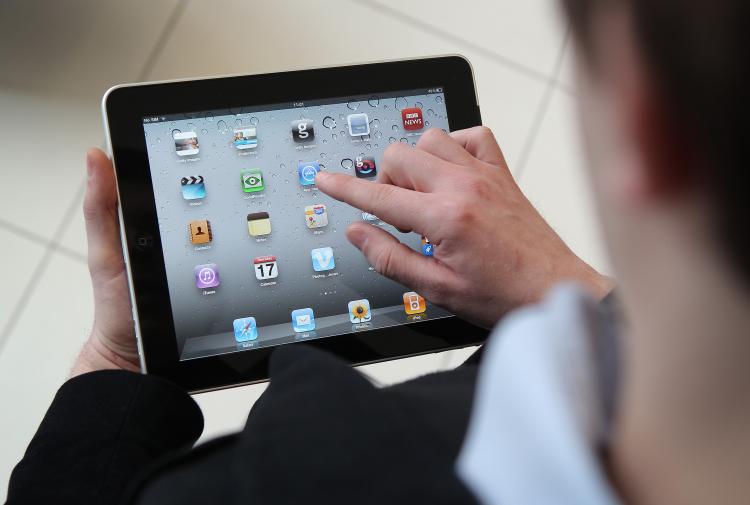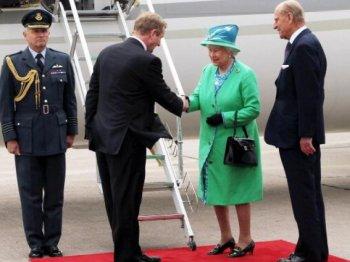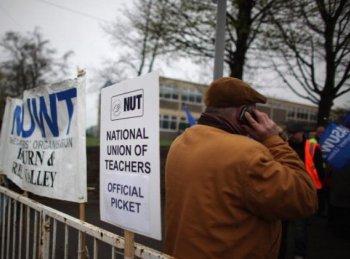BBC Cannot But Independent Channels Can Use Product Placememt Under Strict Rules
BBC shows are still banned from using product placement but on Monday it became legal for other British tv channels.
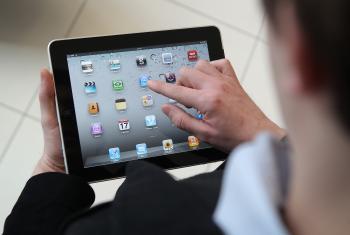
A man uses an Apple iPad tablet. Apple uses product placement regularly as part of its marketing strategies. Worldwide iPad sales are expected to amount to 20 million in 2012. Photo Illustration by Peter Macdiarmid/Getty Images
|Updated:
